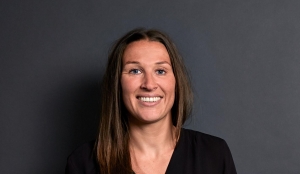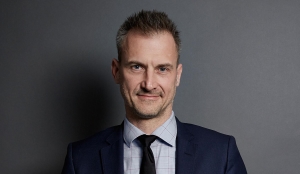New proposal from Advocate-General in a matter concerning religious headgear goes against a former proposal
In a new matter, the European Court of Justice has been asked by a French court if it is in accordance with EU-law, particularly Directive 2000/78/EF, that an employer prohibits employees to wear headgear towards the company's customers. On 30 May 2016, Advocate-General Juliane Kokotts declared in a similar Belgian matter that it was possible to impose such a ban. However in the new French matter, Advocate-General Eleanor Sharpston reaches another conclusion.
Please see our newsletter about Advocate-General Juliane Kokott's proposal for a decision here.
Background
As a rule, an employer must not discriminate its employees based on religion, political conviction etc. However by the Føtex-Judgment (U2005.1265H), the Danish Supreme Court held that it was not unlawful indirect discrimination to deny an employee to wear a religiously motivated headscarf as the company had phrased a staff policy in writing which clearly described the clothing rules and which the employer consistently enforced.
In the specific French matter, a female project engineer Asma Bougnauoi was employed in the company Micropole SA on 15 July 2008. In connection with her employment, Micropole SA emphasised that it fully respected the principle about freedom of thought and the individual's religious conviction but that Asma Bougnauoi not under any circumstances when she had internal and external contact with the company's customers could wear a scarf. After about one year's employment, a customer complained that Asma Bougnauoi wore a scarf and therefore at a meeting with her employer on 17 June 2009, Asma Bougnauoi was again informed about the company's principle of the required neutrality towards the customers.
When Asma Bougnauoi still refused to take her scarf of at a customer visit, she was dismissed.
In November 2009, Asma Bougnaoui commenced proceedings for review of the decision about her dismissal at the Conseil de prud’hommes de Paris (industrial court in Paris) as she maintained that the decision was an expression of discrimination because of her religious faith. By judgment of 4 May 2011, this court ruled that the dismissal was reasoned by an actual and objective consideration and ruled in favour of Micropole SA. At the presented court, the matter has now been brought before the European Court of Justice with the following prejudicial issue:
"Are the provisions of Article 4(1) in [Directive 2000/78/EF] to be interpreted so that a consulting IT-company's customer's request of no longer receiving this company's IT-services from an employee – a project engineer – who wears an Islamic scarf constitutes a proper and decisive commercial demand due to the character of certain business activities or the context where such activities are exercised?"
The Advocate-General's proposal
As in the other matters concerning discrimination, first and foremost it is relevant if the discrimination might be considered to be direct or indirect. In the Belgian matter, Advocate-General Juliane Kokotts stated that it was indirect discrimination.
Conversely, Advocate-General Eleanor Sharpston states in this matter that it is direct discrimination:
"(…) Asma Bougnaoui was treated more badly because of her religion than another person would have been treated in a comparable situation (…). Therefore, the dismissal of Asma Bougnaoui represented direct discrimination of her due to her religion or faith as dealt with under Article 2(2) para a) in Directive 2000/78/EF."
The background for this is among others that the policy in question alone aimed at religious symbols and not a general clothing policy for visible characteristics of their employees' political, philosophical or religious conviction as was the case in the Belgian matter.
After a thorough analysis, this is not changed by the exceptions to the provision as the Advocate-General states that irrespective of the precise wording of the prohibition which was used against Asma Bougnaoui the demand of not wearing a headscarf when having contact with the customers could not be considered a "regular and decisive commercial requirement".
Irrespective that Advocate-General Eleanor Sharpston states that it is direct discrimination, a thorough analysis is still made of the term "indirect discrimination", as the Advocate-General, however, takes the view that there is a (hypothetical) internal rule in the company which prescribes that all employees must dress completely neutral. Thereby, Advocate-General Eleanor Sharpston actually also decides upon the Belgian matter which Advocate-General Juliane Kokotts has commented on and which is linked to above.
As Advocate-General Juliane Kokotts, Advocate-General Eleanor Sharpston also makes an evaluation if such internal rules can be considered objectively substantiated in a legitimate goal and the means to fulfill it are appropriate and necessary (i.e. proportionate).
In this respect, Advocate-General Eleanor Sharpston says that the employer's commercial interests (which means the relationship to the customers) can represent a legitimate goal. However, Advocate-General Eleanor Sharpston seems to put the bar somewhat higher with regard to the review of the proportionality, as she stated:
"Therefore, I'm not of the opinion that if a company has a policy according to which the employees must wear a uniform it is unreasonable to demand that employees must do as much as possible to comply with it. Therefore, an employer can prescribe that employees who wear an Islamic headscarf must choose the colour which the uniform has when they choose their headscarf (or offer a headscarf as a part of the uniform)".
Thus, the Advocate-General makes higher demands on the employer than Advocate-General Juliane Kokotts does in her proposal, and she prepares the ground for a somewhat more rigorous review of this question.
Bird & Bird's comments:
As a result of the contents of the clothing regulations, the two Advocate-Generals reach two different conclusions in relation to if it addresses direct or indirect discrimination. However, it seems that the two Advocate-Generals also have different underlying basis regarding the evaluation of such provisions may be considered for legitimate and proportionate, including to which great extent the company's commercial interests must be weighted.
Consequently, the European Court of Justice seems to be at a parting of the ways with the two proposals from the two Advocate-Generals where they can determine how high/low the bar can be set in these matters, and the judgment in the two matters will therefore be very important for the Member States' enforcement of the clothing regulations in a company.




